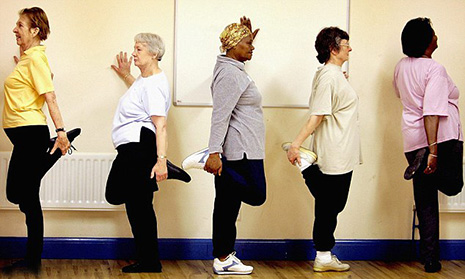Believing you are younger than you actually are is the key to a long life

Those who felt their age were more likely to die young – and people who felt older were at the greatest risk.
Psychologists claim that feeling younger than your actual age could be a combination of healthy lifestyle factors and a greater ‘will to live’.
The research involved 6,500 older adults taking part in the English Longitudinal Study of Ageing, who were asked to assess how old they felt and their death rates were analysed.
The study led by University College London (UCL) scientists follows previous research which linked happiness and having a sense of purpose in life with a lower risk of death.
Co-author Andrew Steptoe, British Heart Foundation Professor of Psychology, said many older people feel younger than their actual age.
He said ‘People’s judgements about how old they feel are likely influenced by a number of factors – aches and pains, serious illness, feelings of vitality, what sorts of social and physical activity we do, and so on.
‘What is interesting in this study is that when we took people’s health state, mobility and functioning into account, we still found an association between feeling older than one’s real age and greater mortality over the next eight years.’
The study participants had an average chronological age of 65.8 years but their average self-perceived age was 56.8 years.
Almost 70 per cent felt three or more years younger than their actual age, while a quarter had a self-perceived age close to their real age.
Around one in 20 felt more than a year older than their chronological age, says a report in JAMA Internal Medicine.
Death rates over a follow-up period of eight years were 14.3 per cent in adults who felt younger and 18.5 percent in those who felt about their actual age.
The rate reached its highest level of almost 25 per cent in those adults who felt older than they really were, according to the study results.
The relationship between self-perceived age and cardiovascular death was strong but there was no link between self-perceived age and cancer death.















































